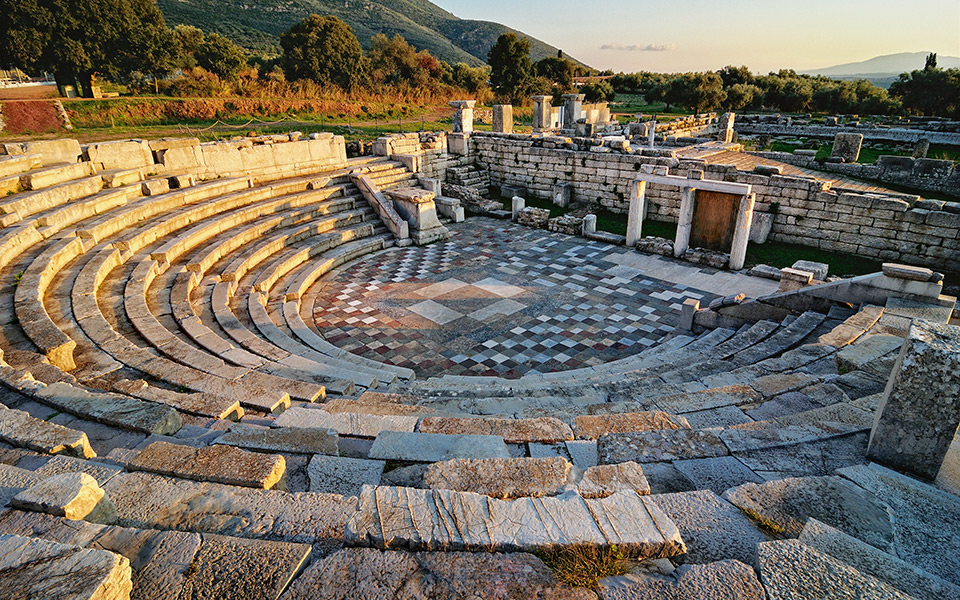371 BC: The Thebans, led by General Epaminondas, vanquish the Spartans at the Battle of Leuctra in Boeotia. Sparta’s defeat spells the end of the Spartan League and the start of Theban hegemony in ancient Greece. In the Peloponnese, the Messinians have every reason to celebrate. After more than three centuries of servitude as helots of their Laconian neighbors, they are at last liberated. Refugees return to the land of their ancestors; now citizens of an autonomous city-state. The time has come for them to determine their own destiny.
369 BC: Epaminondas founds their new capital. With its size and splendor, he wishes to underline the new beginning for the Messinians, shape their political identity and foster their ethnic awareness. Thus, in the fertile land of Messinia, the city now known as Ancient Messene is born. It is named after the first mythical queen of the region, daughter of Triopas, king of Argos, and wife of Polycaon of Laconia. Covering an area of 290 hectares, the city is bigger than Athens and surrounded by massive fortification walls that stretch for 9 kilometers.
“ After more that three centuries of servitude as helots of the Spartans, the Thebans, led by General Epaminondas, vanquish the Spartans at the Battle of Leuctra in Boeotia and are liberated at last. ”
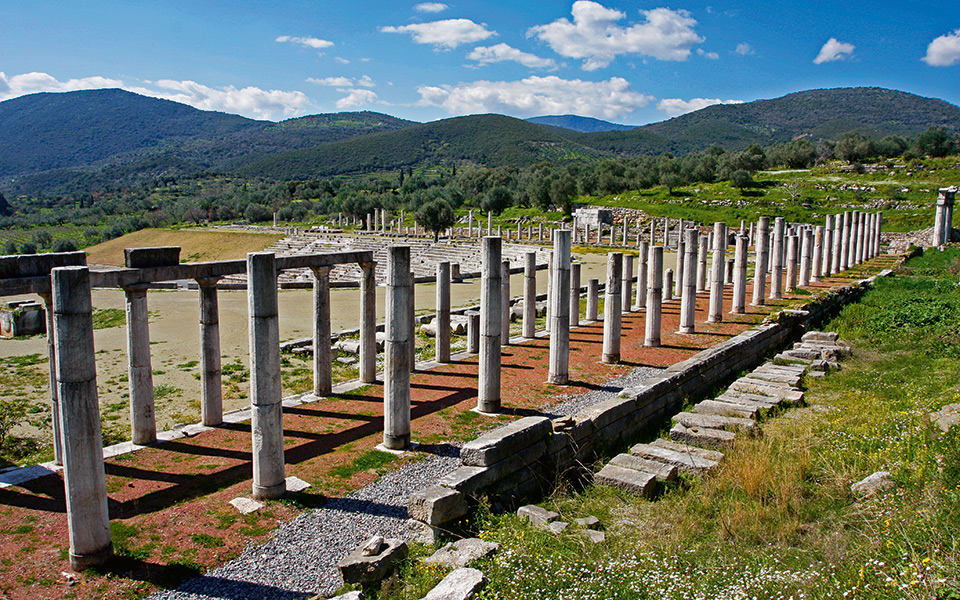
© Olga Charami
“ Epaminondas was not only a great general, but he was also highly educated for his time, deeply philosophical and a firm believer in democracy. ”
“Epaminondas was not only a great general who devised the Oblique Phalanx – a formation later adopted by Alexander the Great – but he was also highly educated for his time, deeply philosophical and a firm believer in democracy. His entourage included a large number of surveyors, architects and urban planners, who chose the orientation of the cities he founded, established their boundaries and laid out the blocks,” notes Emeritus Professor of Archaeology Petros Themelis, who has led excavations at Ancient Messene for more than three decades.
At both Messene and Megalopolis, Epaminondas asked his team of builders and planners to use the Hippodamian grid system, which had been devised and initially implemented in Piraeus (at the request of Pericles) by Hippodamus of Miletus, an architect, urban planner, physician, mathematician, meteorologist and philosopher.
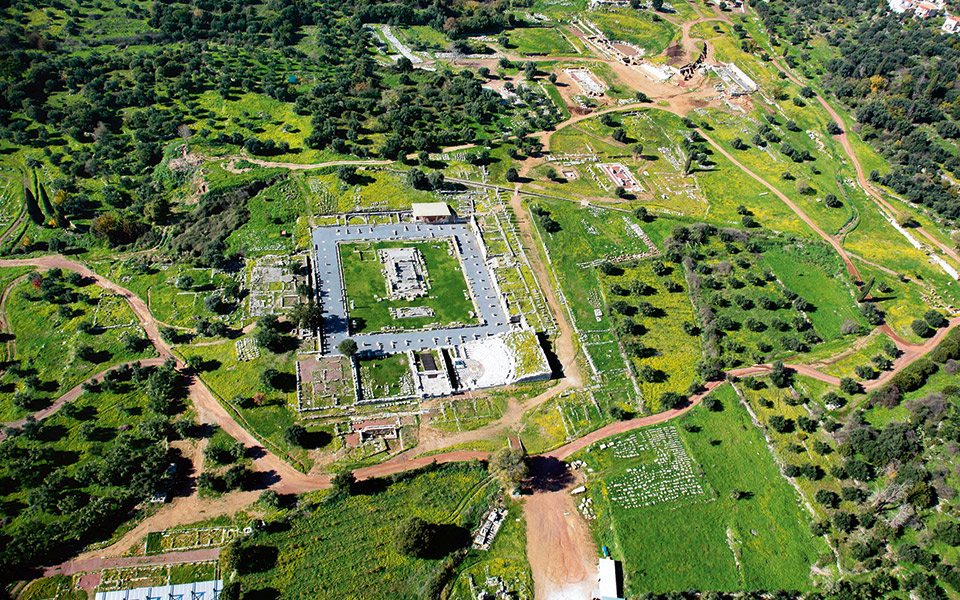
In effect, this meant that everything had to be built in a way that expressed perceptions of democracy at the time, particularly isonomia (“equality before the law”) and isomoiria (“equal distribution”). To begin with, parallel streets were laid out, which were cut vertically by other streets in order to create city blocks of equal size (in Ancient Messene, each covering an area of 3,200 square meters). The building plots too were all of equal size and granted by the state to rich and poor without discrimination. The houses were identical, built according to the same design and with the same orientation, each with a surface area of approximately 300 square meters. They were two-story residences. On the ground floor were the stable and the pitheon, i.e. the storeroom with large jars containing olive oil, pulses and grain. Here too was the hestia (“hearth”), where the great fire would be lit in winter, the area where servants would prepare meals and, of course, the andronas (“men’s quarters”), where the man of the house would entertain his male guests and host the celebrated symposiums (drinking parties).
But Ancient Messene’s democratic planning also extended to communal spaces. All the houses had easy access via wide roads to the imposing city center (an Agora covering 4 hectares), the Stadium (with a length of 200 meters), the impressive Theater (with 12,000 seats and a small movable stage) as well as to other public buildings and places of worship.
Epaminondas was also keen to safeguard the health of the inhabitants. To this end, the city’s water supply was designed in such a way as to provide all buildings with plenty of water, while roads were constructed with a slight camber to help rainwater drain off and prevent them becoming boggy.
“ The only females allowed in the andronas (‘men’s quarters’) were the hetairai (professional courtesans) and flute-girls, invited to entertain the men. The lady of the house and other females in the family lived in the gynaikonitis (‘women’s quarters’), where they raised their children. ”
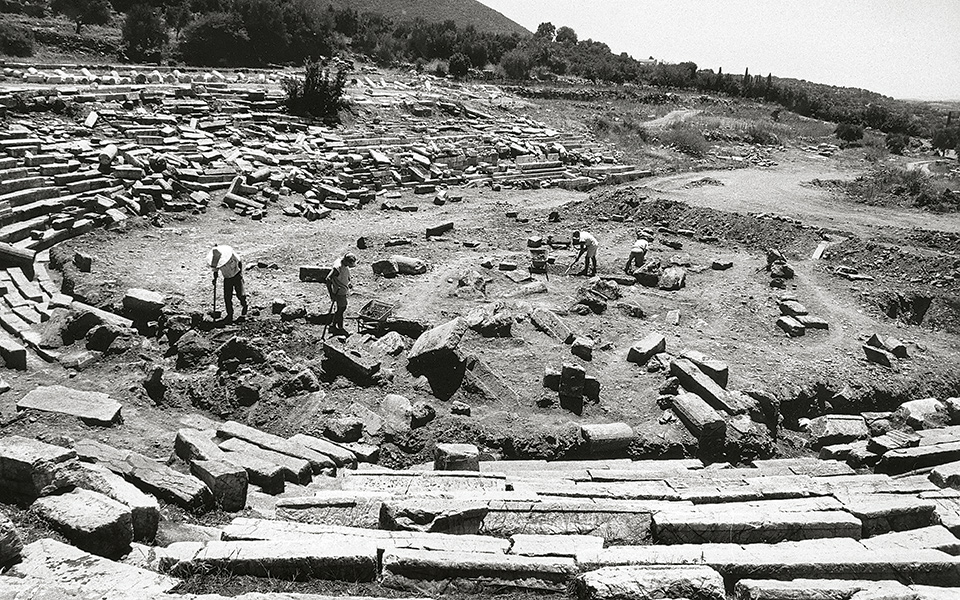
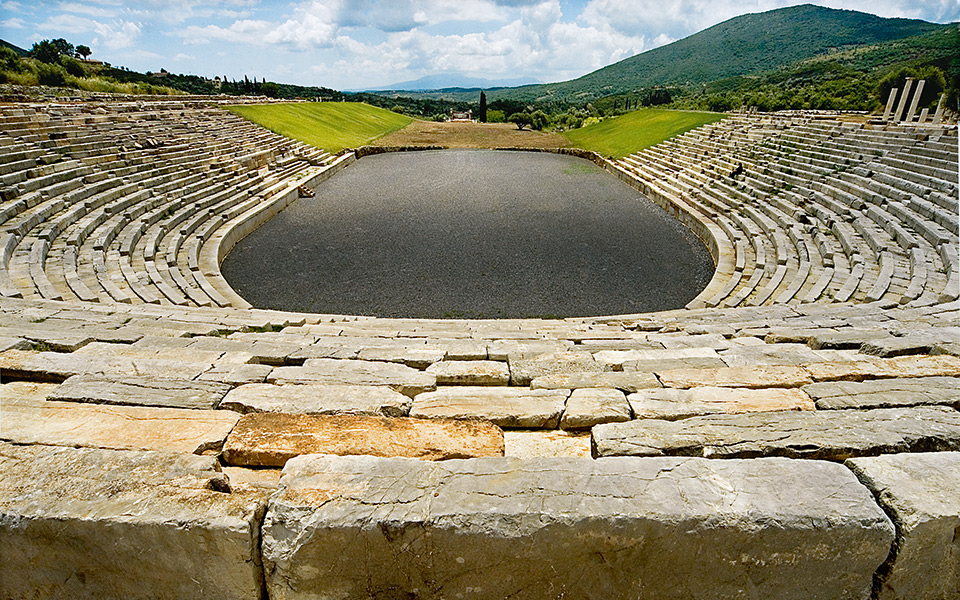
© Perikles Merakos
“We should of course clarify what we mean by ‘democracy’ at that time. All the privileges – in particular the equal distribution of building plots and land – were reserved for free citizens, those having the right to vote,” Professor Themelis stresses. “In any case, the slaves and sharecroppers who worked the land didn’t reside in the city itself but in settlements in the surrounding area. But they did not always remain quiescent. They would either serve as mercenaries, returning with the money they earned to buy land, or rise in revolt to demand more rights. As was the case in 215 BC, when the lower classes in Messinia rose against the ruling class and secured broad-ranging reforms for greater democratization of the polity. They also received a share of the land. Isn’t this how changes take place all over the world? Through struggles?”

